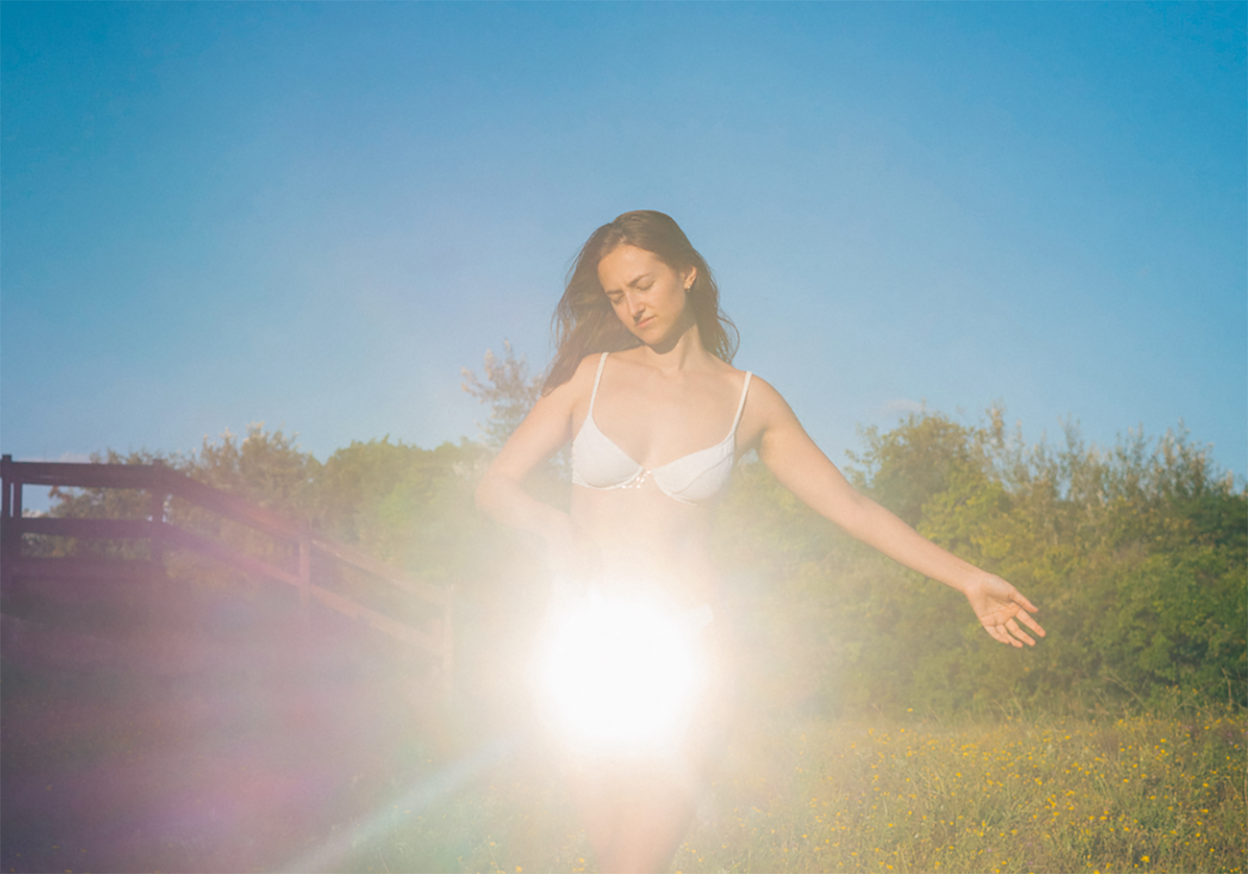Camille Schmidt’s debut album, Nude #9, takes its name from her childhood memories of watching models pose nude for her parents’ paintings—portraits of raw vulnerability given detached, neutral titles.
The irony of those titles is that they made it more pronounced rather than obscuring the subjects’ exposure. Schmidt takes a similar approach on Nude #9, but instead of painting others, she turns the focus inward, peeling back layers of her identity through a kaleidoscope of folk, indie rock, synth-pop, and punk. The result is an album steeped in visceral honesty and self-exploration.
“A lot of these songs were written completely stream of consciousness,” Schmidt explains, and that unfiltered energy courses through the record.
Among the standouts is “XOXO,” which opens with crunching percussion and vocoder-drenched vocals, creating an atmosphere that feels guarded and intimate. Swirling synths infuse warmth into the melody, while the warped vocals act as emotional armour—allowing Schmidt to reveal personal truths while keeping a protective distance.
“Cult in Denver” highlights the expressive nuances of Schmidt’s voice, shifting from delicate and quivering to darker, almost whispered tones. When she sings, “How could anyone be like you are to me?” there’s a reverent, nearly hypnotic quality, leaving its meaning open to interpretation—devotion or delusion? Worship or warning?
One of the album’s most electrifying moments comes with “Stanley,” a song that teeters on the edge of manic urgency. The track follows a woman seemingly adrift, “going nowhere,” caught in life’s current with no way out. The pacing mirrors that sense of restless inertia, making it one of the album’s most compelling listens.
Then there’s “Fish Pills,” a wry, almost playful take on the pursuit of normalcy—whether through dubious medication from a witch doctor or sheer blind faith that things will somehow work out. Schmidt delivers one of her sharpest lyrical moments here: “What do I do? Do I double my dose? / I don’t wanna end up comatose / Screaming in the streets at another protest / Aaron’s on fire, no one’s noticed.”
Schmidt’s songwriting feels like an unfiltered diary entry—unvarnished and deeply personal. She acknowledges this in her own words: “I spent so much of my life not being honest with myself or other people. I thought, what if I stop trying to make sense of it all? What if I just tell the truth of what I’ve seen?”
That honesty shines in “Heaven,” where she reflects on mortality and meaning with stark simplicity: “Heaven is a place that you can’t see / Heaven is a place on Earth to me / Heaven’s always realer than you think / And lately it seems pretty real to me.”
Nuanced yet unfiltered, experimental yet accessible—Nude #9 is a striking debut that captures Schmidt in all her raw, introspective brilliance. It’s an album that doesn’t just invite you in—it dares you to feel everything with her.


Be the first to comment